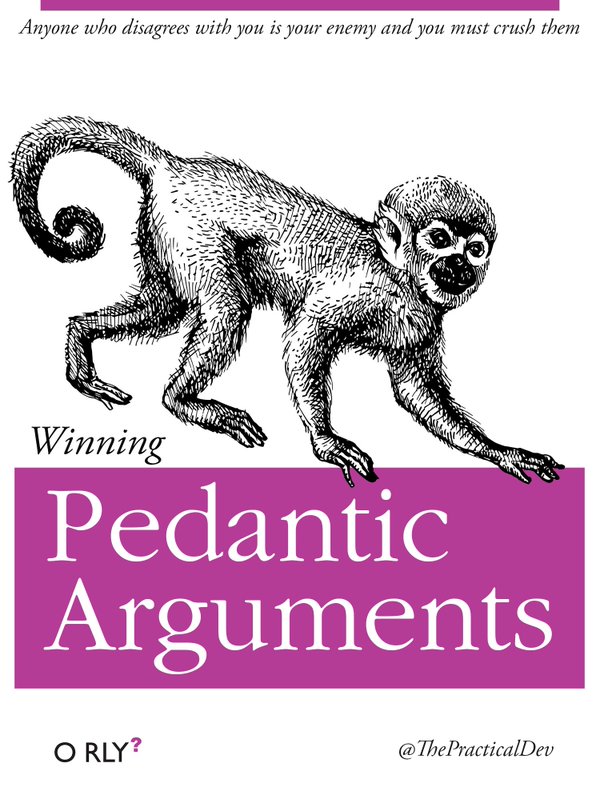
In the diverse and dynamic land of Collaboratia, where teams of various talents and temperaments converge to create and innovate, there emerged a peculiar and perilous competition known as "Winning Pedantic Arguments." This contest, unlike any other, was not celebrated for fostering unity or engendering breakthroughs but rather for its capacity to entangle participants in a web of minutiae and discord.
Central to our narrative is a protagonist named Taylor, a person of keen intellect and unmatched zeal for detail, who became enmeshed in the art of pedantic argumentation. "Anyone who disagrees with you is your enemy and you must crush them," became the mantra that guided Taylor's interactions, turning discussions into duels and collaborations into confrontations.
Armed with an arsenal of facts, figures, and historical precedents, Taylor entered the arena of debate with a singular goal: to emerge victorious, their opponents' perspectives not just rebutted but obliterated. Meetings that were meant to be forums for exchange and advancement became battlegrounds, where the spoils of war were not progress but the hollow satisfaction of having had the last word.
As time marched on, Taylor's prowess in the art of pedantic argumentation grew, but so too did the collateral damage. Projects stalled, creativity withered, and the esprit de corps that once animated their team gave way to a wary détente, where silence was preferred to the risk of engagement.
It was in the midst of this quagmire that an epiphany struck Taylor like a bolt from the blue. The realization came not in the heat of battle but in the quiet aftermath of a particularly Pyrrhic victory, as they surveyed the desolation that their need for dominance had wrought. The epiphany was profound in its simplicity: "Winning isn't about crushing your opponents; it's about finding common ground and building something greater together."
Emboldened by this newfound understanding, Taylor embarked on a journey of redemption, seeking to mend the bridges that had been burned and to foster a new culture within their team—one rooted in mutual respect, open-mindedness, and the recognition that diversity of thought was not a threat but a treasure.
Taylor began to approach discussions not as contests to be won but as opportunities to learn and grow. They listened more than they spoke, asked questions instead of asserting answers, and, most importantly, embraced the possibility that they could be wrong. Slowly but surely, the team's dynamics transformed. Projects that had languished in the purgatory of indecision found new life, creativity flourished, and a renewed sense of purpose animated their collaborations.
The tale of "Winning Pedantic Arguments: Anyone who disagrees with you is your enemy and you must crush them" evolved from a cautionary narrative into a parable of change. It became a legend within Collaboratia, a reminder that the true measure of victory lies not in the defeat of one's adversaries but in the ability to unite diverse perspectives in pursuit of a common goal.
And so, Taylor's story, once a byword for division and discord, became a beacon of hope and a testament to the transformative power of empathy, humility, and the ceaseless quest for understanding. In the end, Taylor discovered that the most enduring victories are those won not across the conference table but within the hearts and minds of those we seek to inspire and lead.